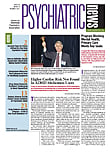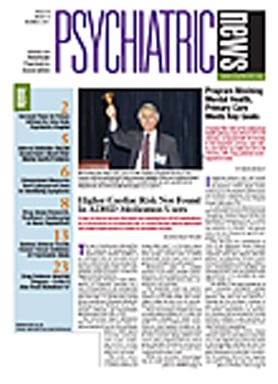More than two-thirds of adolescent students receive too little sleep on a regular basis, a condition associated with many health-risk behaviors, said Centers for Disease Control and Prevention (CDC) researchers in the online August 5 Preventive Medicine.
Lela McKnight-Eily, Ph.D., and her colleagues, all of the CDC’s National Center for Chronic Disease Prevention and Health Promotion, used data from the 2007 national Youth Risk Behavior Survey of 12,154 U.S. high school students, a biennial self-administered survey designed to produce data representative of public and private school students in grades 9 through 12. They assessed hours of sleep by asking students, “On an average school night, how many hours of sleep do you get?” Responses were dichotomized into “insufficient sleep” (fewer than eight hours) and “sufficient sleep” (eight or more hours).
The students were also asked about several health-risk behaviors, including non-diet soda consumption; lack of physical activity; hours spent watching television; hours spent playing video or computer games or using a computer for a reason not related to school work; use of cigarettes, alcohol, or marijuana; sexual intercourse; feelings of sadness or hopelessness; and serious consideration of suicide.
Insufficient sleep was associated with 10 of the 11 health-risk behaviors examined. For all 10, students who reported insufficient sleep had higher odds of engaging in the risk behavior than did students who reported sufficient sleep. There was no association between insufficient sleep and watching television for more than three hours a day overall, but the association was significant among male students, but not among females.
McKnight-Eily and her colleagues theorized that chronic sleep insufficiency might have an effect on cognition, decreasing adolescents’ ability to comprehend consequences of risk behaviors or increasing susceptibility to peer pressure. Other possibilities they mentioned included the synergistic influence on cognitive abilities of insufficient sleep combined with substance use and the possibility that psychiatric problems might underlie the relationship between sleep and some risk behaviors.
“Many adolescents are not getting the recommended hours of sleep they need on school nights. Insufficient sleep is associated with participation in a number of health-risk behaviors including substance use, physical fighting, and serious consideration of suicide attempt,” said McKnight-Eily in a CDC Media Advisory. “Public health intervention is greatly needed, and the consideration of delayed school start times may hold promise as one effective step in a comprehensive approach to address this problem.”


